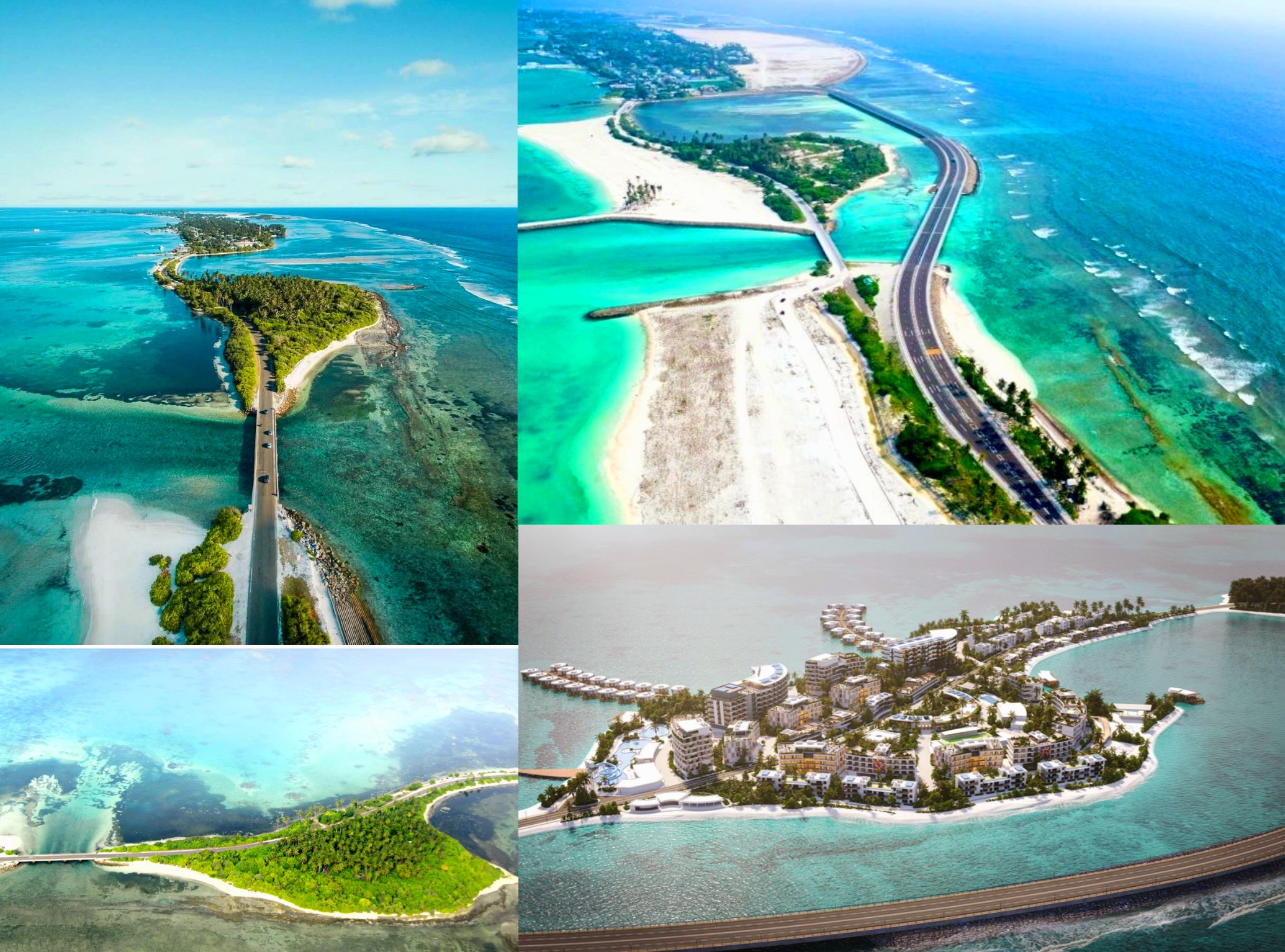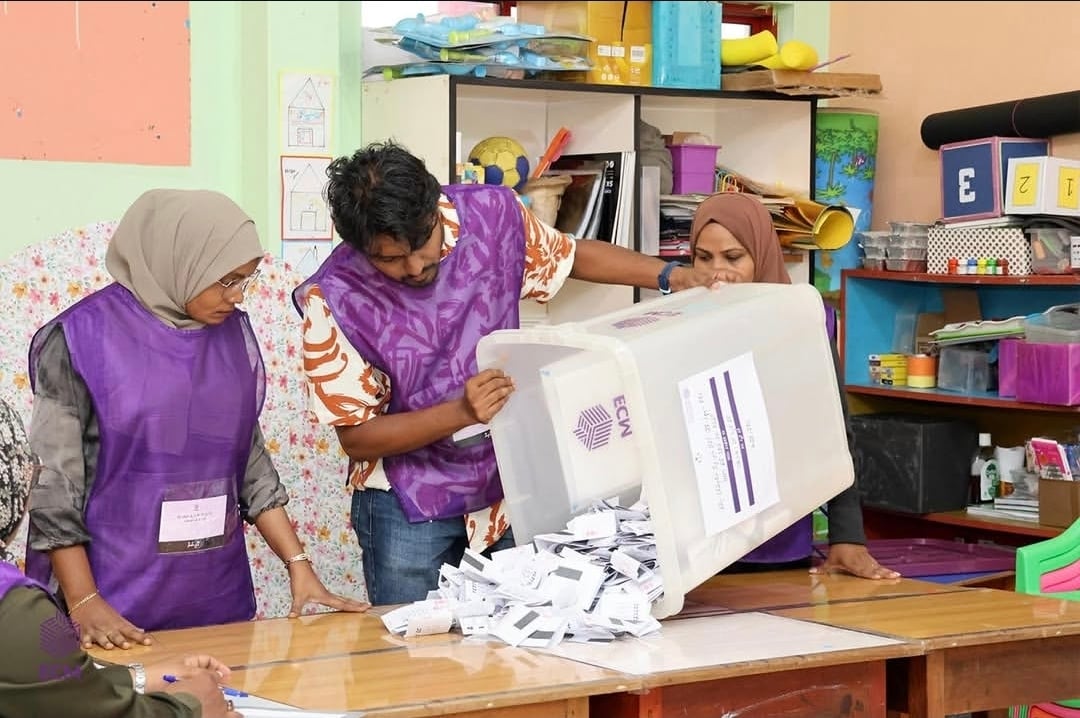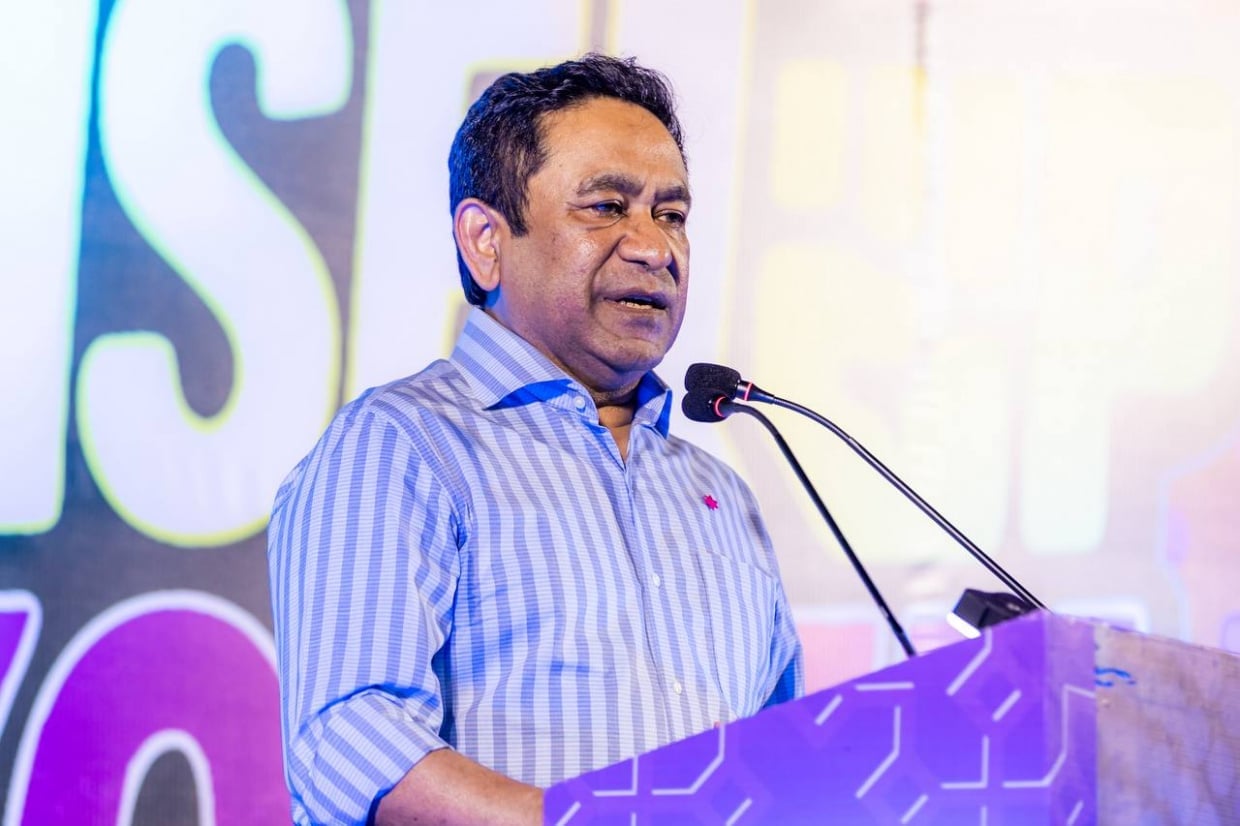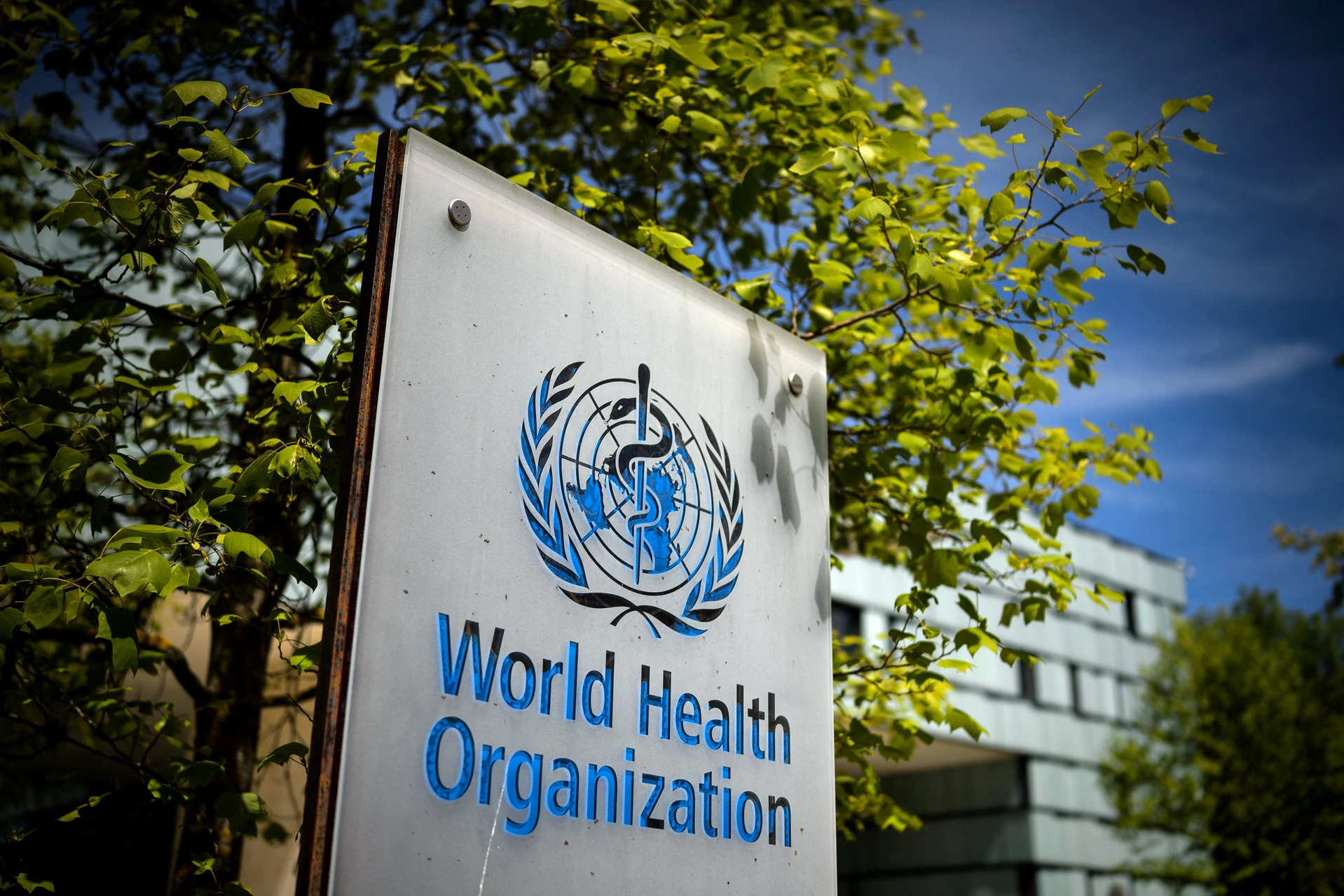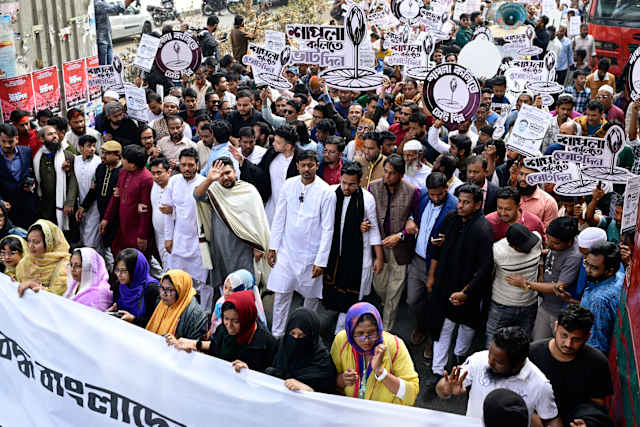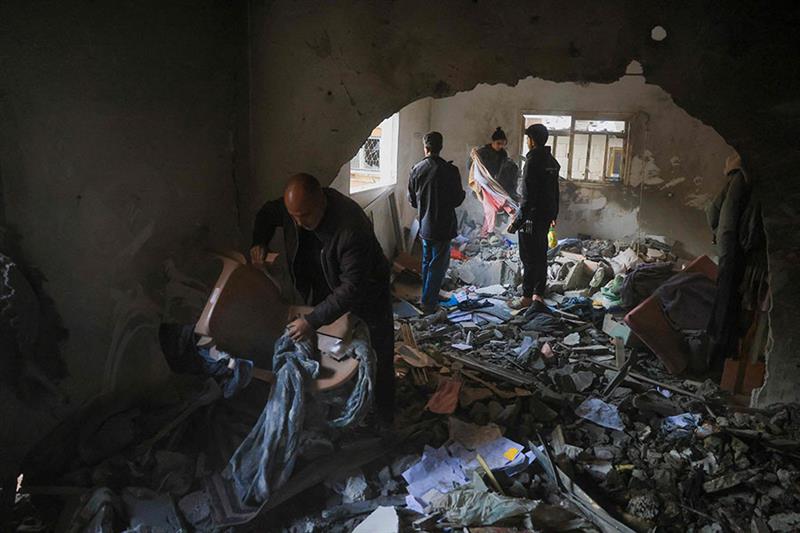For nearly two decades, the people of Addu City in the Maldives have clung to a vision of economic prosperity and tourism development centered on Hankede, an island long touted as the key to transforming the atoll’s future. Successive governments, starting with President Maumoon Abdul Gayoom in 2005, have dangled the promise of Hankede as a beacon of hope—a project to bring jobs, self-sufficiency, and global recognition to this southernmost atoll, far from the economic hub of Malé. Yet, with each administration, the dream has faltered, and the latest twist under President Mohamed Muizzu’s government—designating Hankede as a halal tourism destination—has sparked outrage, rekindling fears that Addu’s aspirations may once again be left unfulfilled.
A History of Unmet Expectations
Hankede’s story is one of repeated promises and stalled progress. During President Gayoom’s administration (1978–2008), Hankede was envisioned as a cornerstone of Addu’s tourism ambitions, alongside islands like Viligili and Herethere. Initially part of Maradhoo, it was separated and earmarked for tourism development. In 2006, Thoondu Private Limited was tasked with building a 100–200-bed city hotel within 18 months, but the project fizzled out. In 2008, another company, Half Degree, built a sample room, only for work to grind to a halt.
Under President Mohamed Nasheed in 2011, a Singaporean firm, Crescendas Group, took up the mantle, but political turmoil following the 2012 “coup” derailed progress. By 2013, plans for a four- or five-star resort were announced, but these too failed to materialize. Each setback deepened Addu’s frustration, as residents yearned for the economic boost that tourism had brought to Malé and other atolls.
The most tangible progress came during President Ibrahim Mohamed Solih’s administration (2018–2023). His government invested heavily, securing a $142.9 million loan from the Bank of China to develop Hankede as an integrated tourism hub. A bypass bridge, costing part of a $1.2 billion road development project, was built to separate Hankede from the inhabited islands of Maradhoo and Hithadhoo, signaling serious intent. Plans included two grand hotels, two deluxe hotels, 10 boutique hotels, 64 serviced apartments, 17 beach villas, a knowledge center, sports facilities, a theater, and a food court. Land reclamation expanded Hankede’s beachfront, and the China National Electrical Engineering Company was contracted to bring this vision to life. For the first time, Addu’s dream seemed within reach.
A New Direction Sparks Controversy
In April 2024, President Muizzu’s administration initially reaffirmed these plans, holding a grand ceremony with fireworks to mark the project’s launch. Home Minister Ali Ihsaan promised work would begin within two weeks. Yet, those weeks passed without progress, and in June 2025, the government unveiled a new plan: Hankede would be developed as a halal tourism destination, catering to Muslim travelers with alcohol-free facilities, gender-segregated amenities, and Sharia-compliant services. The announcement, aimed at tapping into the growing global halal tourism market, has instead ignited a firestorm of criticism.
Addu’s residents, opposition leaders, and even some members of Muizzu’s ruling People’s National Congress (PNC) have decried the shift. They argue it betrays the long-standing vision of an all-inclusive, high-end tourism model that could maximize economic benefits and job opportunities. Maldivian Democratic Party (MDP) Chairperson Fayyaz Ismail called the decision a deliberate move to “halt” Addu’s progress, noting that the Solih government had secured funding and finalized plans for a transformative project. In a post on X, he wrote, “Hankede was a crucial project to transform Addu’s tourism and economy. This is an attempt to prevent the people of Addu City from standing on their own feet.”
PNC MP Ahmed Azaan, representing Hithadhoo Central, echoed these concerns, revealing that the $120 million Bank of China loan was nearly finalized when Muizzu’s government took office. He noted that the loan was delayed due to Maldives’ request to postpone debt repayments to Chinese banks, which stalled new financing. Azaan criticized the government’s abrupt pivot, arguing that halting a project with secured funding and a contractor risks eroding investor confidence in Addu, a region already struggling to attract tourism investment.
Prominent Maldivian writer Lucas Jaleel also weighed in on X, lamenting the redirection of an island separated at great cost—hundreds of millions of rufiyaa for the bypass bridge and land reclamation—for an untested halal tourism model. “This is a loss for the people of Addu,” he wrote.
Addu’s Frustrations Boil Over
For Addu’s residents, Hankede is more than a project—it’s a symbol of their economic aspirations and pride. Social media posts reflect deep disappointment, with one youth writing on X, “Hankede is more than a project. It’s a promise to our youth, our economy, and our pride. Any change to the Addu Hankede Project reflects a broader attempt to undermine and destroy the tourism potential of Addu City.” The post, directed at the President’s Office and Addu City Council, underscores the community’s sense of betrayal.
Residents fear the halal tourism model will narrow Hankede’s appeal, limiting job opportunities and economic benefits compared to the broader, high-end tourism vision. They also resent the lack of consultation, a recurring grievance in Maldivian development projects. Addu, long neglected compared to Malé, has pinned its hopes on tourism to retain talent and reduce migration to the capital. Since the British left the atoll in 1976, many Adduans have worked in Malé’s tourism sector, far from their families. Hankede was meant to bring those opportunities home.
A Broader Context
The Maldives, renowned for its luxury resorts and pristine beaches, faces challenges like climate change, rising sea levels, and economic disparities between its atolls. Hankede was seen as a step toward decentralizing tourism and addressing Addu’s marginalization. While halal tourism may align with global trends—catering to Muslim-majority countries—the shift risks clashing with the Maldives’ established brand as a high-end, all-inclusive destination. Critics worry it could deter diverse international visitors and limit Addu’s economic potential.
A Call for Reconsideration
The Hankede saga reflects a broader struggle for Addu’s place in the Maldives’ economic future. After decades of broken promises, the tangible progress under Solih’s administration had revived hope. The costly bypass bridge, land reclamation, and secured funding were seen as proof of commitment. Yet, the Muizzu government’s pivot to halal tourism threatens to unravel that progress, leaving Adduans questioning whether their dreams will once again turn to disappointment.
As opposition leaders and residents call for transparency and consultation, the government faces a critical choice. Balancing the global appeal of halal tourism with Addu’s long-held aspirations requires careful planning and dialogue. For now, the people of Addu wait, hoping their voices will be heard and their vision for Hankede restored—a vision of economic empowerment, local jobs, and a thriving tourism industry that finally reaches their shores.
A History of Unmet Expectations
Hankede’s story is one of repeated promises and stalled progress. During President Gayoom’s administration (1978–2008), Hankede was envisioned as a cornerstone of Addu’s tourism ambitions, alongside islands like Viligili and Herethere. Initially part of Maradhoo, it was separated and earmarked for tourism development. In 2006, Thoondu Private Limited was tasked with building a 100–200-bed city hotel within 18 months, but the project fizzled out. In 2008, another company, Half Degree, built a sample room, only for work to grind to a halt.
Under President Mohamed Nasheed in 2011, a Singaporean firm, Crescendas Group, took up the mantle, but political turmoil following the 2012 “coup” derailed progress. By 2013, plans for a four- or five-star resort were announced, but these too failed to materialize. Each setback deepened Addu’s frustration, as residents yearned for the economic boost that tourism had brought to Malé and other atolls.
The most tangible progress came during President Ibrahim Mohamed Solih’s administration (2018–2023). His government invested heavily, securing a $142.9 million loan from the Bank of China to develop Hankede as an integrated tourism hub. A bypass bridge, costing part of a $1.2 billion road development project, was built to separate Hankede from the inhabited islands of Maradhoo and Hithadhoo, signaling serious intent. Plans included two grand hotels, two deluxe hotels, 10 boutique hotels, 64 serviced apartments, 17 beach villas, a knowledge center, sports facilities, a theater, and a food court. Land reclamation expanded Hankede’s beachfront, and the China National Electrical Engineering Company was contracted to bring this vision to life. For the first time, Addu’s dream seemed within reach.
A New Direction Sparks Controversy
In April 2024, President Muizzu’s administration initially reaffirmed these plans, holding a grand ceremony with fireworks to mark the project’s launch. Home Minister Ali Ihsaan promised work would begin within two weeks. Yet, those weeks passed without progress, and in June 2025, the government unveiled a new plan: Hankede would be developed as a halal tourism destination, catering to Muslim travelers with alcohol-free facilities, gender-segregated amenities, and Sharia-compliant services. The announcement, aimed at tapping into the growing global halal tourism market, has instead ignited a firestorm of criticism.
Addu’s residents, opposition leaders, and even some members of Muizzu’s ruling People’s National Congress (PNC) have decried the shift. They argue it betrays the long-standing vision of an all-inclusive, high-end tourism model that could maximize economic benefits and job opportunities. Maldivian Democratic Party (MDP) Chairperson Fayyaz Ismail called the decision a deliberate move to “halt” Addu’s progress, noting that the Solih government had secured funding and finalized plans for a transformative project. In a post on X, he wrote, “Hankede was a crucial project to transform Addu’s tourism and economy. This is an attempt to prevent the people of Addu City from standing on their own feet.”
PNC MP Ahmed Azaan, representing Hithadhoo Central, echoed these concerns, revealing that the $120 million Bank of China loan was nearly finalized when Muizzu’s government took office. He noted that the loan was delayed due to Maldives’ request to postpone debt repayments to Chinese banks, which stalled new financing. Azaan criticized the government’s abrupt pivot, arguing that halting a project with secured funding and a contractor risks eroding investor confidence in Addu, a region already struggling to attract tourism investment.
Prominent Maldivian writer Lucas Jaleel also weighed in on X, lamenting the redirection of an island separated at great cost—hundreds of millions of rufiyaa for the bypass bridge and land reclamation—for an untested halal tourism model. “This is a loss for the people of Addu,” he wrote.
Addu’s Frustrations Boil Over
For Addu’s residents, Hankede is more than a project—it’s a symbol of their economic aspirations and pride. Social media posts reflect deep disappointment, with one youth writing on X, “Hankede is more than a project. It’s a promise to our youth, our economy, and our pride. Any change to the Addu Hankede Project reflects a broader attempt to undermine and destroy the tourism potential of Addu City.” The post, directed at the President’s Office and Addu City Council, underscores the community’s sense of betrayal.
Residents fear the halal tourism model will narrow Hankede’s appeal, limiting job opportunities and economic benefits compared to the broader, high-end tourism vision. They also resent the lack of consultation, a recurring grievance in Maldivian development projects. Addu, long neglected compared to Malé, has pinned its hopes on tourism to retain talent and reduce migration to the capital. Since the British left the atoll in 1976, many Adduans have worked in Malé’s tourism sector, far from their families. Hankede was meant to bring those opportunities home.
A Broader Context
The Maldives, renowned for its luxury resorts and pristine beaches, faces challenges like climate change, rising sea levels, and economic disparities between its atolls. Hankede was seen as a step toward decentralizing tourism and addressing Addu’s marginalization. While halal tourism may align with global trends—catering to Muslim-majority countries—the shift risks clashing with the Maldives’ established brand as a high-end, all-inclusive destination. Critics worry it could deter diverse international visitors and limit Addu’s economic potential.
A Call for Reconsideration
The Hankede saga reflects a broader struggle for Addu’s place in the Maldives’ economic future. After decades of broken promises, the tangible progress under Solih’s administration had revived hope. The costly bypass bridge, land reclamation, and secured funding were seen as proof of commitment. Yet, the Muizzu government’s pivot to halal tourism threatens to unravel that progress, leaving Adduans questioning whether their dreams will once again turn to disappointment.
As opposition leaders and residents call for transparency and consultation, the government faces a critical choice. Balancing the global appeal of halal tourism with Addu’s long-held aspirations requires careful planning and dialogue. For now, the people of Addu wait, hoping their voices will be heard and their vision for Hankede restored—a vision of economic empowerment, local jobs, and a thriving tourism industry that finally reaches their shores.



